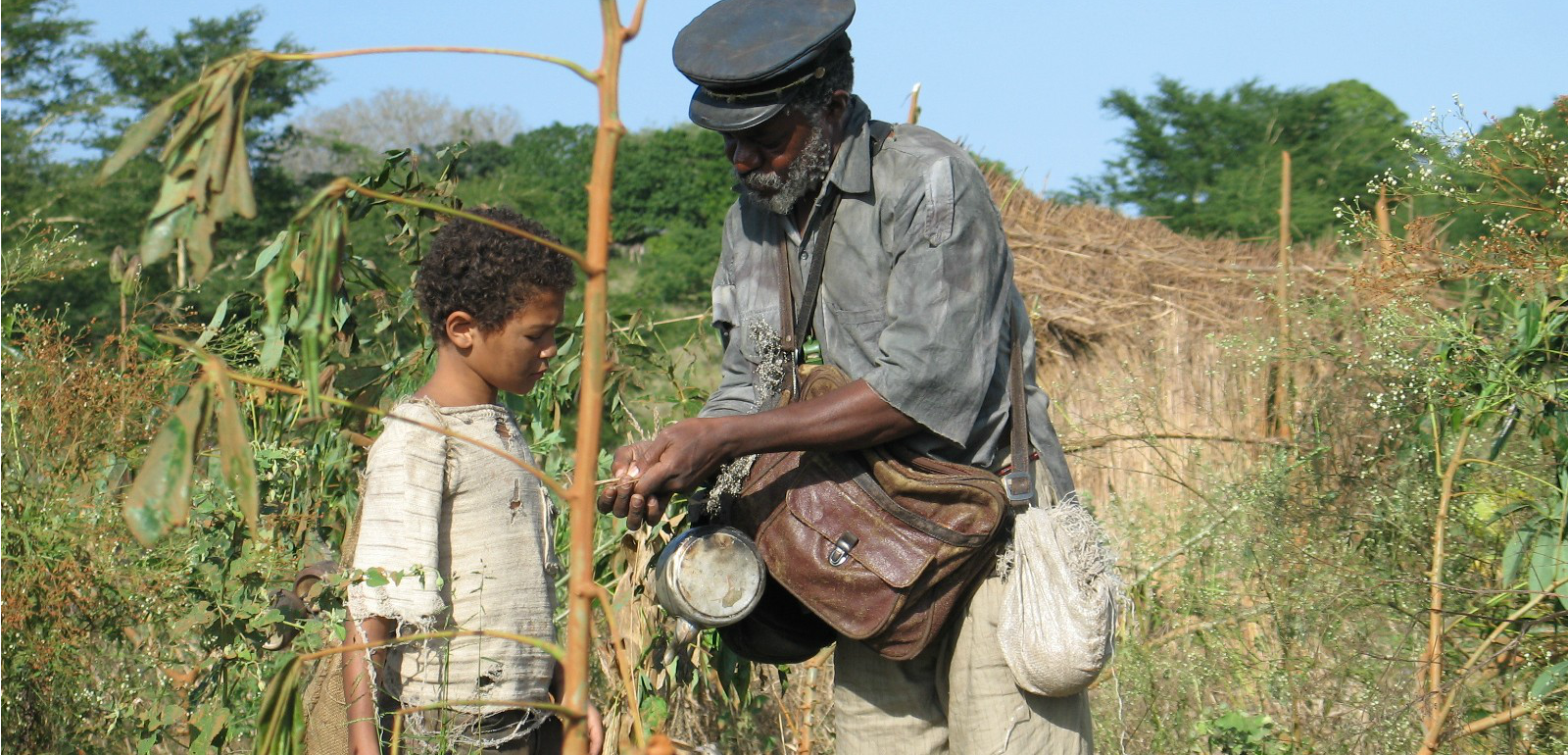by Kelsey Cunningham

Sleepwalking Land directed by Teresa Prata (Terra Sonâmbula, Portugal/Mozambique, 2007), shows the viewer the necessity of stories and dreams to survive the brutality of warfare.
Mudinga, a 12-year-old boy who cannot remember his past, wanders with Tuahir, an old man, through the countryside of Mozambique. The pair travel aimlessly, gathering food and attempting to avoid the marauding gangs that plague the country. On their travels, they find a burnt-out bus littered with carbonized bodies. Among the remains of the assault on the bus, the pair find a suitcase full of notebooks alongside the body of a man shot through the heart. The notebooks tell the story of the war from a civilian victim’s perspective; Mudinga reads the pages aloud, giving voice to Kindzu’s own story of bitter loss and the physical and emotional wounds of war. Through these pages, Mudinga also discovers possible clues to his identity and the identity of his mother. As Mudinga reads Kindzu’s diary aloud to the illiterate Tuahir, the audience wonders if perhaps the boy is inventing some of the stories in order to justify his own hopes. As the plot progresses, reuniting Mudinga with his mother becomes the reason for the pair to go on.
A Sleepwalking Land is indeed the sense one gets from the depiction of Mozambique from this film, but the film does not mention any specific political group or even show any national symbols such as a flag or map. The film is meant to speak to the civilian casualties and suffering of any war, a place filled with sleepwalkers; people who are forced to hold on the dreams as their physically deprived and mentally drained bodies are tortured by the realities of human cruelty. Weakened but afloat in their own dreams, they are like the shell of a worn-out bus drifting into the ocean; clinging to the last available shred of hope, as absurd as it may be, while slowly sinking into the abyss of inevitability lest they run ashore some unlikely salvation. The last scene captures the liberating power of dreams and stories beautifully as Mudinga approaches the abandoned ship where his potential mother has made her nest far away from the pain of land.